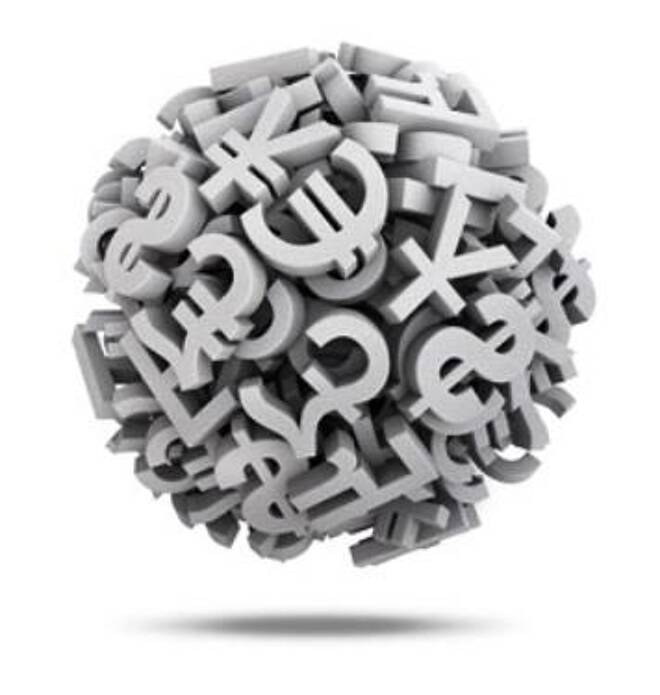Advertisement
Advertisement
Global Currency Watch – Thursday August 13
By:
Chinese central bank moves have dominated the global financial headlines for the last 2 days. The US Dollar Index weakened by 1.1 percent yesterday after
Chinese central bank moves have dominated the global financial headlines for the last 2 days. The US Dollar Index weakened by 1.1 percent yesterday after the investors fretted over the slowdown in Chinese economy which could possibly delay the interest rate hike move by the US Federal Reserve.
Moreover, positive developments on the Greek front along with mixed economic data releases from the nation kept the US Dollar Index pressurized. US Dollar Index made an intraday low of 95.95 and closed at 96.30 on Wednesday. This morning the US dollar added 20 points to trade at 96.48 after news that the PBOC intervened selling dollars to help support its currency. China guided its currency lower for a third day Thursday after briefly intervening to prop it up the day before, showing how the leadership is struggling to manage the market in largely uncharted territory for Beijing.
The Aussie and the kiwi were the biggest benefactors in China’s buying on Wednesday as the Tasmania currencies bounced back. The Aussie moved to 0.7382 while the kiwi gained to 0.6620. Australia’s dollar rose 0.3 percent while New Zealand’s gained 0.2 percent.
After the initial wave of selling in the wake of the move of the yuan to 6.23, the Aussie came under further pressure again yesterday morning when the official reference rate was allowed to depreciate another 1.6% to 6.33. That took it to a fresh 6-year low of 0.7216.
But it has rallied around 170 points, 1.7 cents; against the US dollar since the low as forex traders reassess what the Chinese move means for the Fed. That’s seen the euro closing in on 1.12, the kiwi back above 66 cents and the Canadian dollar pushing USDCAD back down to 1.29.
Euro strengthened by 1.1 percent yesterday as the discussions over a massive third rescue package of nearly €85bn (£60bn) is going through final touches. Greece and the EU leaders agreed a bailout deal “in principle” thereby infusing an optimism wave in the market and supporting the shared currency.
Due to recent turmoil and the cuts required by the bailout, Greek’s economy is expected to shrink 2.3% this year and face two years of recession thereby causing worry to the Euro-zone’s economy as a whole. The euro soared over 110 points on Wednesday and gave back 22 points as markets corrected in the morning session to trade at 1.1137.
The Great British pound gained 0.26 percent yesterday due to weakness seen in the US Dollar Index after investors speculated that Yuan’s devaluation could delay the rate hike move by the US Federal Reserve. Moreover, robust economic data release from the nation showed that UK’s unemployment rose in the second quarter and total wage growth slowed thereby suggesting some easing in the recovery of the labor market which sent the pound to trade at 1.5621.
The Japanese yen weakened on Wednesday and this morning as more lackluster economic data hit the wires and a done deal with Greece eased safe haven trades. The JPY is trading at 124.43. The Japanese Yen depreciated by 0.72 percent yesterday due to positive developments on the Greek front prompted the traders to place bets on other currencies that acted as a negative factor for the currency. Moreover, disappointing economic data release form the nation showed that core machinery orders for June dropped more than expected. Japan’s Core Machinery Orders for the month of July declined to -7.9 percent from a gain of 0.6 percent in June.
About the Author
Barry Normanauthor
Advertisement
